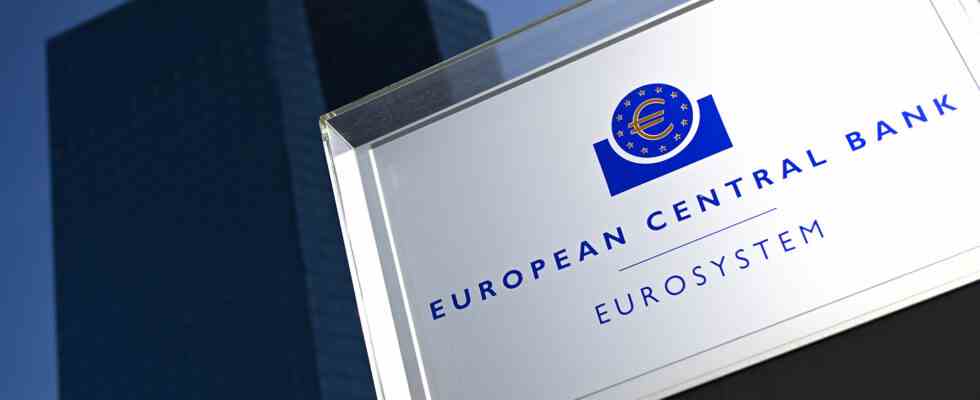Status: 11/16/2022 3:13 p.m
The European Central Bank sees growing risks for financial stability in the euro area. The background to this is the ongoing price surge as a result of the war against Ukraine and the deteriorating economy.
The European Central Bank (ECB) has warned of increasing threats to financial stability in the euro area. “People and companies are already feeling the effects of rising inflation and the slowdown in economic activity,” said ECB Vice President Luis de Guindos at the presentation of the central bank’s semi-annual Financial Stability Report in Frankfurt.
Euro area facing technical recession
“In our view, the risks to financial stability have increased and a technical recession in the euro area has become more likely,” warned the Vice President of the ECB. Economists speak of a technical recession when the economic output of an economy or, in this case, a currency area, shrinks for two quarters in a row, i.e. the gross domestic product (GDP) falls.
In the third quarter, eurozone GDP grew just 0.2 percent quarter-on-quarter. The EU Commission now expects the eurozone economy to slide into recession in the winter quarter.
Inflation is the main risk to financial stability
“The main risk to financial stability and growth right now is that inflation remains at very high levels,” de Guindos said in a video link. “Our main contribution to financial stability now is to establish price stability.” The ECB sees this guaranteed in the medium term at two percent inflation in the euro area. Inflation has been a long way from this for months: consumer prices in the euro area in October were 10.7 percent above the level of the same month last year.
In the opinion of many economists, the ECB had hesitated for far too long to get inflation under control by raising interest rates. However, in the past few months, the ranks of the currency watchdogs have changed their minds: The key interest rate in the euro area is now at least 2.0 percent.
Growing risks for banks
High inflation and the weakening economy pose risks for households and companies, but also for the banking sector. Since it is becoming more difficult for companies and households to repay their debts, banks could be confronted with higher loan defaults in the medium term, ECB Vice President de Guindos continued. If the prospects continue to deteriorate, an increase in corporate insolvencies cannot be ruled out, particularly among energy-intensive companies.
Meanwhile, high inflation and rising gas and electricity bills are putting a strain on households, the currency watchdogs said. This reduces their purchasing power and possibly also their ability to repay loans. In its report, the ECB also pointed out that around half of energy traders with exposure to gas and power derivatives could face further margin calls should energy prices continue to rise or fluctuate sharply.
tensions in the financial markets
The ECB also included potential tensions in the financial markets among the risks to financial stability, which would test the resilience of funds, for example. “Furthermore, all of these vulnerabilities could occur simultaneously and potentially reinforce each other.”
Overall, however, the central bank, which directly supervises the largest banks in the euro area, considers the banking system in the currency area of the 19 countries to be “well positioned to withstand many risks”.

